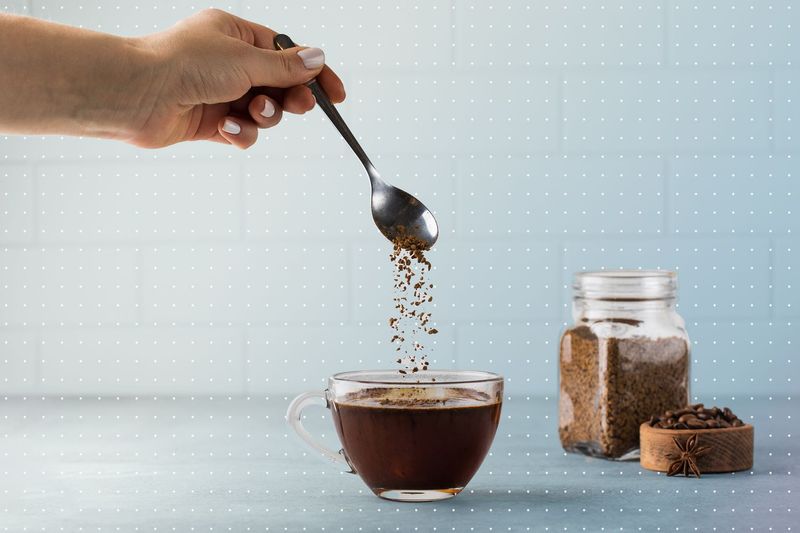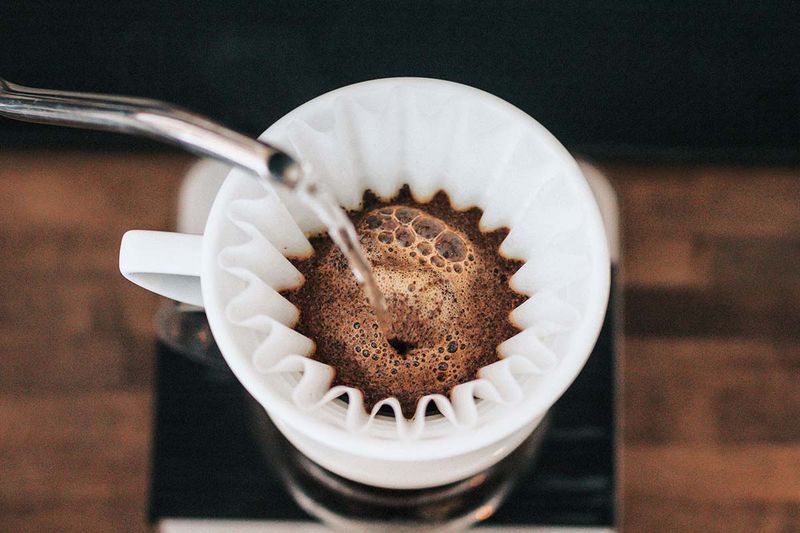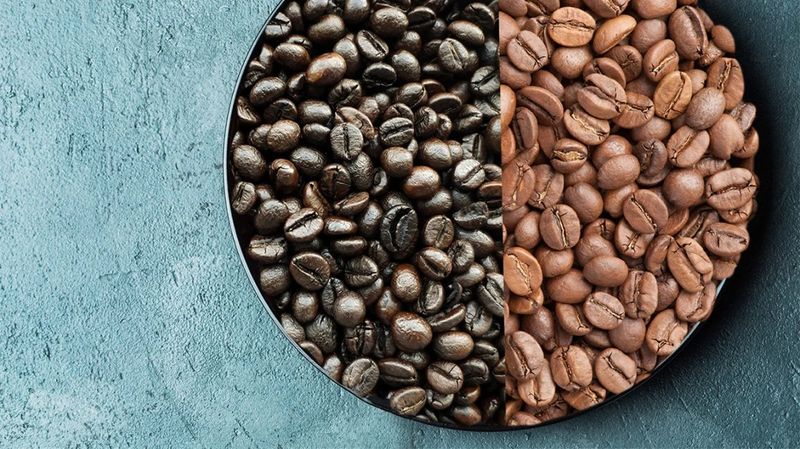Coffee isn’t just a morning ritual—it’s a daily habit that can either support your health or slowly work against it. While many people sip their favorite brew for the energy boost alone, studies show that certain types of coffee can offer real health benefits, from protecting your brain to improving heart function. But here’s the twist: some seemingly harmless coffee choices may be loaded with hidden sugars, unhealthy fats, or compounds that quietly undermine your wellness goals.
If you think all coffee is created equal, it’s time to think again. The way coffee is brewed, the roast you choose, and what you add to your cup all play a major role in whether your drink helps or hurts. A filtered cup of black coffee can lower your risk of cardiovascular disease, while a sugar-laden frappuccino might contribute to weight gain and blood sugar spikes. Even unfiltered favorites like French press or Turkish coffee can raise LDL cholesterol levels if consumed too often.
On the flip side, options like cold brew, espresso, and instant coffee can offer impressive perks when enjoyed the right way. These healthier brews are often lower in acid, rich in antioxidants, and less likely to contain unnecessary calories—especially when you skip the sugary extras.
In this article, we’re breaking down six types of coffee that support a healthy lifestyle and four that quietly sabotage it, so you can sip smarter without giving up your daily pick-me-up. Whether you brew at home or hit the café drive-thru, a few simple changes can make your coffee routine work in your body’s favor. Ready to upgrade your cup? Let’s dive into the best—and worst—coffee choices for your health.
1. Instant Coffee
Many coffee connoisseurs turn up their noses at instant coffee, but your body might actually thank you for it. Instant coffee contains higher levels of chlorogenic acids than many other preparations, helping reduce inflammation throughout your body.
The quick processing method preserves these beneficial compounds that fight oxidative stress – a major contributor to chronic diseases and aging. Plus, the convenience factor means you’re more likely to enjoy it without unhealthy add-ins from coffee shops.
For those watching their budget or with limited time in the morning, this humble option delivers impressive health benefits without fancy equipment or techniques.
2. Filtered Coffee
Paper filters do more than just keep grounds out of your cup – they’re actually working as tiny health guardians. The filtering process removes compounds called cafestol and kahweol that can raise harmful LDL cholesterol levels in your bloodstream.
Regular drip coffee makers or pour-over methods using paper filters create a brew that supports cardiovascular health. Research shows people who drink filtered coffee regularly have lower rates of heart disease compared to those who prefer unfiltered varieties.
A simple white paper filter might not look impressive, but it’s performing valuable heart protection with every pot you brew.
3. Espresso
That tiny cup packs a powerful cognitive punch! Espresso delivers concentrated antioxidants and caffeine in a small volume, making it especially effective for supporting brain function when consumed in moderation.
The quick extraction method creates a rich brew that may help protect neurons and enhance mental alertness without overwhelming your system. Research suggests coffee drinkers have lower rates of neurodegenerative conditions like Alzheimer’s and Parkinson’s disease.
The ritual of enjoying a small, intense espresso also encourages mindful consumption rather than absent-minded sipping of larger drinks throughout the day. This measured approach helps maximize benefits while minimizing potential drawbacks.
4. Cold Brew
Cold brew’s naturally smooth, less acidic flavor profile means you’re less likely to mask bitterness with calorie-laden cream and sugar. The slow extraction process creates a coffee that’s inherently sweeter and more rounded than hot-brewed alternatives.
For those watching their weight, this preparation method offers a practical advantage – you can enjoy the pure coffee flavor without all the add-ins that quickly transform your drink into a dessert. Many people find they can drink cold brew black or with just a splash of milk.
As an added bonus, the gentler extraction process also creates a beverage that’s easier on sensitive stomachs while still delivering the metabolism-boosting benefits of caffeine.
5. Low-Acid Coffee
Coffee’s natural acidity can trigger discomfort for people with digestive issues, but low-acid varieties offer a solution. These specially processed beans undergo techniques that reduce acid content while preserving flavor, making morning coffee enjoyable again for those with sensitive systems.
People with acid reflux, GERD, or general stomach sensitivity often find they can return to their coffee routine without the burning or discomfort. The reduced acidity doesn’t mean reduced health benefits – you’ll still get the antioxidants and other protective compounds.
Look for beans specifically labeled as low-acid or stomach-friendly, often created through special roasting processes or naturally lower-acid bean varieties.
6. Light Roast Arabica
The lighter the roast, the more antioxidants remain intact! Light roast Arabica beans undergo less heat exposure during roasting, preserving delicate compounds that get damaged or destroyed in darker roasts.
These beans retain higher levels of chlorogenic acid, a powerful antioxidant linked to reduced inflammation and better blood sugar control. The lighter roasting also preserves more of coffee’s natural complexity and fruity notes, creating a more interesting flavor experience.
While darker roasts have their own charm, choosing light roast Arabica means you’re getting the maximum nutritional benefit from your daily brew. The brighter, more acidic profile pairs perfectly with morning meals.
7. French Press
That rich, full-bodied French press coffee comes with a hidden health trade-off. The metal mesh filter allows oils and compounds called diterpenes to pass straight into your cup, which can raise LDL cholesterol levels over time.
Studies show regular consumption of unfiltered coffee can increase total cholesterol by up to 8% and LDL (the “bad” cholesterol) by 10%. For people already managing cholesterol issues or with family history of heart disease, this brewing method might undermine other healthy habits.
The same robust mouthfeel that makes French press so appealing is unfortunately created by the very compounds that can affect heart health. Occasional enjoyment is fine, but daily consumption deserves caution.
8. Turkish Coffee
The centuries-old tradition of Turkish coffee creates a richly flavored experience, but the unfiltered preparation method comes with health considerations. Brewing finely ground coffee directly in water allows oils and compounds to remain in your cup that would otherwise be caught by filters.
These compounds, particularly cafestol and kahweol, can raise blood cholesterol levels when consumed regularly. The traditional serving size is small, which helps limit exposure, but daily drinkers should monitor their cholesterol levels.
The cultural significance and unique preparation ritual make Turkish coffee special for occasional enjoyment. Consider balancing your coffee routine with filtered options if this is your preferred style.
9. Sugar-Loaded Frappuccinos
That creamy, ice-blended treat from your favorite coffee chain might be working against your health goals without you realizing it. A typical 16-ounce Frappuccino can contain 50-80 grams of sugar – that’s up to 20 teaspoons in a single drink!
The combination of sugar, whipped cream, flavored syrups, and other add-ins transforms what started as coffee into essentially a milkshake. These drinks can contain more calories than a full meal (400-800 calories) while providing little nutritional value.
Regular consumption can lead to weight gain, blood sugar spikes, and increased inflammation – negating any potential benefits from the coffee itself. Save these treats for special occasions rather than daily consumption.
10. Canned Coffee Drinks
Grabbing a ready-to-drink coffee from the refrigerated section seems like a smart time-saver, but check that ingredient list first! Many canned and bottled coffee beverages contain surprising additions – stabilizers, preservatives, artificial flavors, and excessive sweeteners.
A single can might contain corn syrup, carrageenan, added oils, or artificial colors that wouldn’t be found in fresh-brewed coffee. These additives can trigger inflammation or digestive issues in sensitive individuals.
Even seemingly healthy versions often pack 20-30 grams of sugar per container. When convenience is necessary, look for options with minimal ingredients – ideally just coffee, milk, and limited sweeteners – to maintain coffee’s natural benefits.










Leave a comment